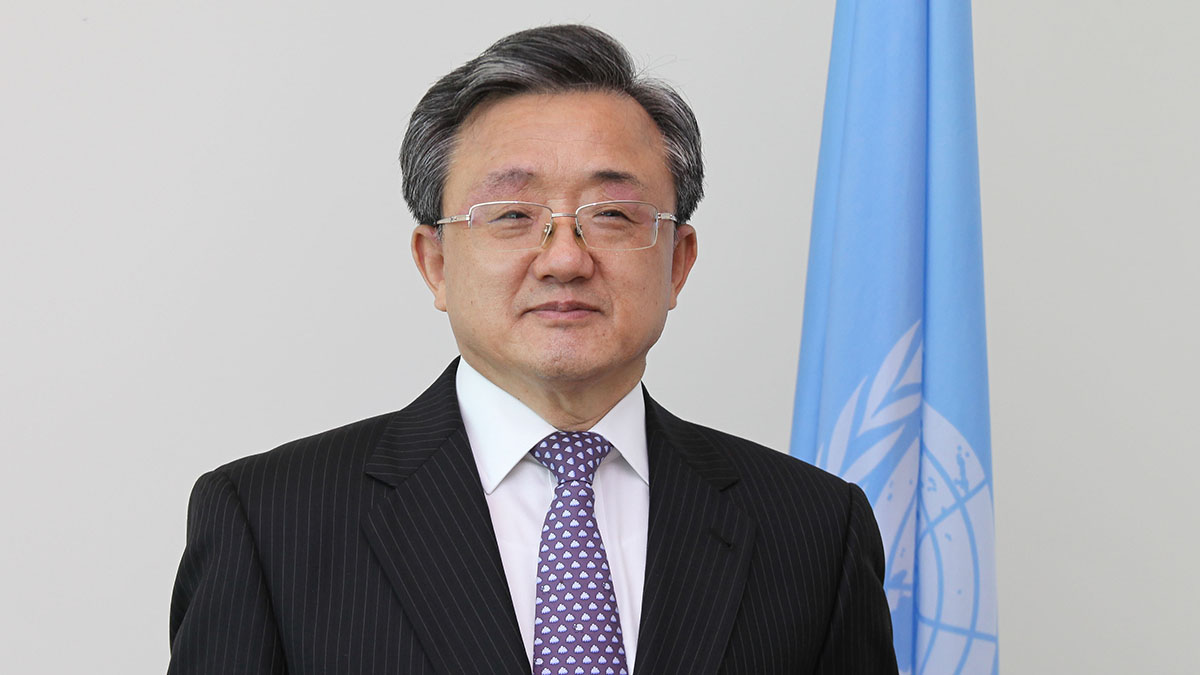by Liu Zhenmin, Under-Secretary-General for Economic and Social Affairs, UN DESA
Liu Zhenmin / Picture supplied
The COVID-19 pandemic has become a multi-faceted global crisis with significant loss of life and social and economic impacts.
As the pandemic fuels lockdowns, most countries and municipalities are pursuing digital government strategies, many with innovative initiatives, according to the recently launched United Nations E-Government Survey 2020.
Research by the United Nations Department of Economic and Social Affairs (UN DESA) demonstrates that digital solutions have played a critical role, not only in scientific research and understanding of the virus itself, but also in enabling continuing economic activities and delivery of essential social services, including education and healthcare.
In responding to the pandemic, governments around the world have been exploring new ways to engage and to provide clear, up-to-date information to the public and to healthcare workers, while working alongside and with stakeholders to reduce the spike in misinformation and disinformation.
They have put in place new tools, such as dedicated COVID-19 information portals, hackathons, e-services for supply of medical goods, virtual medical consultations, and self-diagnosis apps, among others. Many countries were quick to deploy tracking and tracing apps, and apps for working and learning from home.
In more than one way, the COVID-19 pandemic is a multiple stress test of crisis preparedness and resilience of our societies; there are many lessons to be learned from this cascading series of crisis.
Recent experience at country and municipal levels tells us that we need to strengthen national capacities for science-based decision-making in order to enhance public trust in science, share knowledge for more collaborative research, ensure universal access to digital solutions, and act with greater urgency on global scientific cooperation, including on the vaccines.
In this context, governments should build on the momentum of the decade of action to deliver the Sustainable Development Goals (SDGs) by focusing their post-crisis digital government strategies on improving data protection and digital inclusion policies, as well as on strengthening the policy and technical capabilities of public institutions.
Among such steps are renewed efforts to use digital platforms for accurate and timely information-sharing; encourage two-way communication with people for fostering e-participation initiatives; invest in innovative technologies to increase resilience of healthcare economy; and enhance public service delivery.
However, not all countries are in a position to leverage digital technologies to provide accessible, reliable, and inclusive services for all, especially vulnerable communities, and empower people through open and participatory mechanisms.
Many more are not technologically empowered to identify and address the risks associated with digital technologies.
This is where member entities of UNGIS can play a role, by partnering with countries to enhance their capacity building, including through public-private partnerships.
Ultimately, digital technologies and solutions are an implementation tool for the SDGs and a means to improving public service delivery, increasing people’s engagement, enhancing transparency, accountability, and inclusion, and making life better for all.
It will be important that Governments in turn, engage with stakeholders, including technology leaders and small and medium-sized enterprises, through effective partnerships. We can accelerate progress, reduce inequalities, and come out of this pandemic stronger only through multi-stakeholder and multilateral cooperation.
UN DESA remains fully committed to raise awareness of both the importance of digitalization in achieving the SDGs, and of the unique opportunity that UNGIS presents for more effective collaboration in this area within the UN System.


